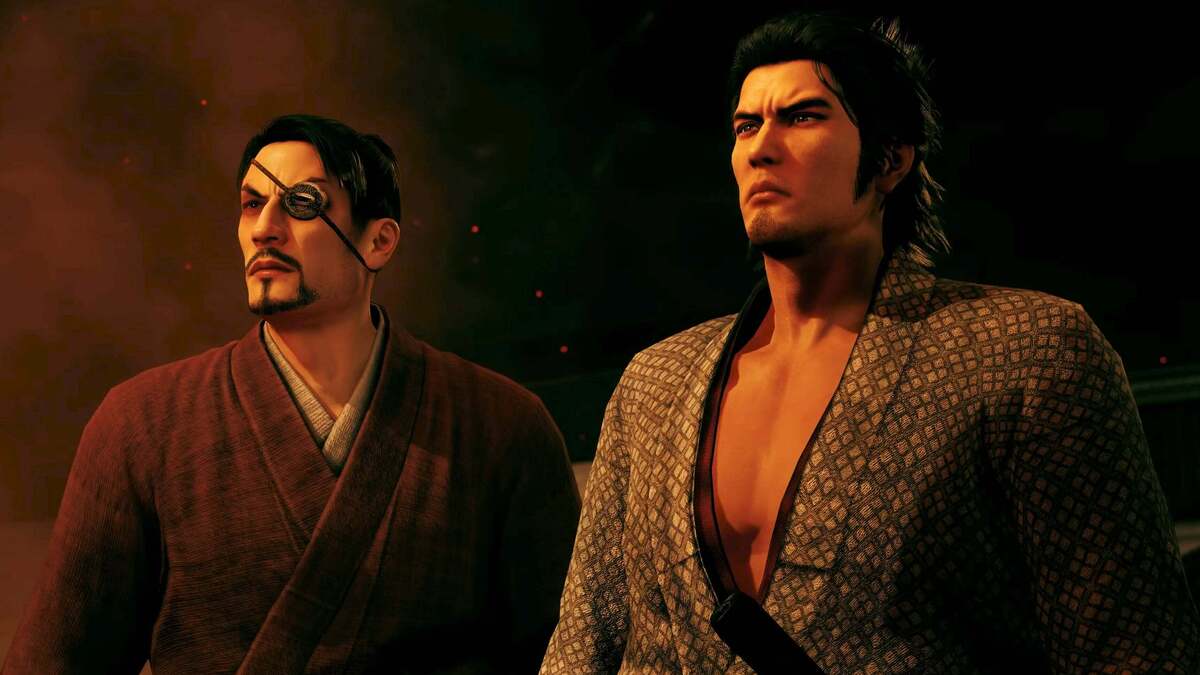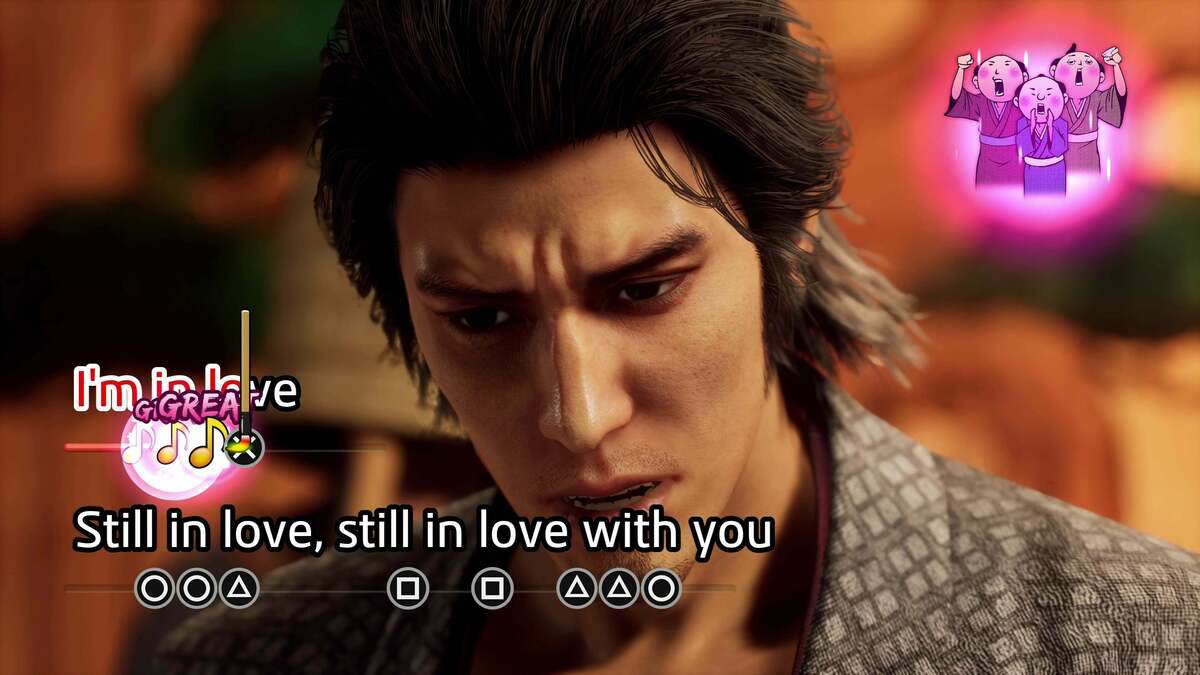‘Like a Dragon: Ishin!’ Review: An epic samurai tale leaves Japan for the first time

Sakamoto Ryōma, protagonist of Like a Dragon: Ishin!, and actual historical samurai.
Sega
hide caption
toggle caption
Sega

Sakamoto Ryōma, protagonist of Like a Dragon: Ishin!, and actual historical samurai.
Sega
It’s easy to forget nowadays, but the Yakuza franchise actual struggled outside of Japan for many years. With its mainline games floundering in the West, spinoffs didn’t have a chance at localization for an international audience.
One of these titles, 2014’s Ryū ga Gotoku Ishin!, never made it out of Japan. But the franchise’s fate improved with Yakuza 0′s Western release in 2017. That game’s popularity paved the way for future games such as Yakuza: Like a Dragon to make their way overseas. It also sparked a remastering renaissance, as older games got released on new hardware, such as Yakuza Kiwami and Yakuza 3 Remastered.
Now, after nearly a decade, samurai epic Ryū ga Gotoku Ishin! comes to international audiences and modern consoles with the English title Like a Dragon: Ishin!. It’s a heart-wrenching story about brotherhood and found family, complete with the charismatic characters we’ve come to expect from the franchise. However, its combat can’t always escape its dated PlayStation 3 roots.

This 1866 picture, taken in Nagasaki, depicts samurai Sakamoto Ryōma, on whose life Like a Dragon: Ishin! is based.
JIJI PRESS/AFP via Getty Images
hide caption
toggle caption
JIJI PRESS/AFP via Getty Images
New city, familiar faces
Like a Dragon: Ishin! follows a young samurai named Sakamoto Ryōma, based on the real-life person who lived during Japan’s Bakumatsu era — a pivotal time in the mid-1800s when the ruling shogunate crumbled ahead of the Meiji Restoration. As loose historical fiction, the game masterfully blends fictional flourishes with actual people like Ryōma.
Bristling against the deeply-entrenched hierarchies of the day, Ryōma begins the game by joining the Tosa Loyalist Party to fight for a more egalitarian Japan. However, out of nowhere, his father figure, Yoshida Toyo, gets murdered in cold blood. Afterward, Ryōma vows to track his killer down and his investigation leads him to the capital city of Kyo.
There, Ryōma changes his name to Saitō Hajime (another nod to a historical figure) and joins a new clan of samurai called the Shinsengumi, which acts as the city’s police force and reinforces its rigid social order. By day, Ryōma’s forced to uphold the status quo. By night, he tries to undermine it. He balances this double life while on the trail of Yoshida’s killer, which leads to incredibly tense moments throughout the story where his cover is almost blown.

Unit officer Okita Soji, left, modelled after Yakuza series icon Goro Majima.
Sega
hide caption
toggle caption
Sega

Unit officer Okita Soji, left, modelled after Yakuza series icon Goro Majima.
Sega
The cast of Like a Dragon: Ishin! is all modeled on familiar characters from the main Yakuza franchise. Ryōma looks like the legacy main protagonist, Kazuma Kiryu. The elite officers that make up the Shinsengumi take on the likenesses of Kiryu’s old enemies and comrades, with fan favorites like Goro Majima appearing as unit officer Okita Soji. It’s almost like watching a historical TV show populated by actors who got famous in a different genre. But since the characters differ from their mainline counterparts, newcomers can fully enjoy Ishin! without playing previous games.
While the main plot has plenty of drama, wacky side quests make Like a Dragon: Ishin! stand out. A particularly memorable episode involves a British trader who demands Japan open its borders for commerce. But as soon as he steps foot in the country, a bad case of seasickness strips him of his imposing manner, which Ryōma cures with a tasty Japanese snack. It’s a lighthearted moment that nonetheless gets to the dark history of colonialism, a theme that the main story treats more seriously.

Enjoy delightfully anachronistic karaoke, alongside other ridiculous mini-games.
Sega
hide caption
toggle caption
Sega

Enjoy delightfully anachronistic karaoke, alongside other ridiculous mini-games.
Sega
Other side stories include Ryōma dozing off to a chatterbox who talks his ears off about their life story and then indignantly quizzes him on. You can also sample ridiculous mini-games that include karaoke, fan dancing, chicken racing, and even cutting cannon balls in half. Kyo bursts with bizarre and relatable diversions that’ll keep you entertained for hours and make the city feel like a real, lived-in place.
The Way of the Samurai
Like a Dragon: Ishin! features various fighting styles based on Ryōma’s weapons — the classic samurai sword, a revolver, and his fists. In brawler style, Ryōma can pick up items to either smash or throw at opponents. But what if you need to dispatch a particularly troublesome enemy? Use the Swordsman style. Need to handle multiple opponents at once? The Wild Dancer style has you covered. Want to pick off enemies from afar? That’s what the Gunslinger style is for. The variety keeps fights from growing stale.
However, the biggest issue with Like a Dragon: Ishin!‘s combat is how stiff it feels. In other Yakuza games, I could switch between styles seamlessly mid-combo. In Ishin!, Ryōma has to stop attacking, pause, and then proceed to change styles. It completely ruins the flow and leaves Ryōma wide open to enemy attacks. Since so much of the game’s presentation has been upgraded for the remake, it’s a shame that the combat fluidity of recent titles didn’t make it in.

Ishin! presents numerous combat styles, but switching between them lacks the fluidity of recent franchise titles.
Sega
hide caption
toggle caption
Sega

Ishin! presents numerous combat styles, but switching between them lacks the fluidity of recent franchise titles.
Sega
The inconsistent camera doesn’t do the game any favors either. Many of Ishin!‘s encounters take place in small and enclosed spaces where the camera can swing too close to Ryōma’s backside, hampering visibility. Furthermore, there’s no dedicated lock-on button, so it’s sometimes hard to keep track of your desired opponent. All of these little issues add up to an occasionally frustrating experience.

It’s not all historical fiction — you can also summon the likeness of real-life 21st-century actor Rahul Kohli to battle alongside you.
Sega
hide caption
toggle caption
Sega
Ishin! does succeed at shaking up the combat formula with Trooper Cards, however, which imbue Ryōma with health regeneration, support abilities and special attacks. He can use a card to fire off an electric strike that chains nearby opponents and knocks them down. He can even use them to summon cameos from our era as well, from actor Rahul Kohli to professional wrestler Kenny Omega. It’s a lot of fun to mix cards to fit your playstyle and get an extra edge in battle.
A remake worth discovering
Like a Dragon: Ishin! joins a long line of recent remakes in the video game industry — from The Last of Us Part I to Dead Space to the upcoming Resident Evil 4.
But Ishin! is unique in that it’ll be a fresh adventure for most players. It’s a sign that the game’s publisher isn’t afraid to localize an overlooked gem with such a distinctly Japanese story and setting. Despite some clunky combat, Like a Dragon: Ishin! offers a top-notch narrative, memorable characters, and an overall experience worthy of the Yakuza franchise.
Andy Bickerton and James Perkins Mastromarino contributed to this review.
For all the latest Entertainment News Click Here
For the latest news and updates, follow us on Google News.
